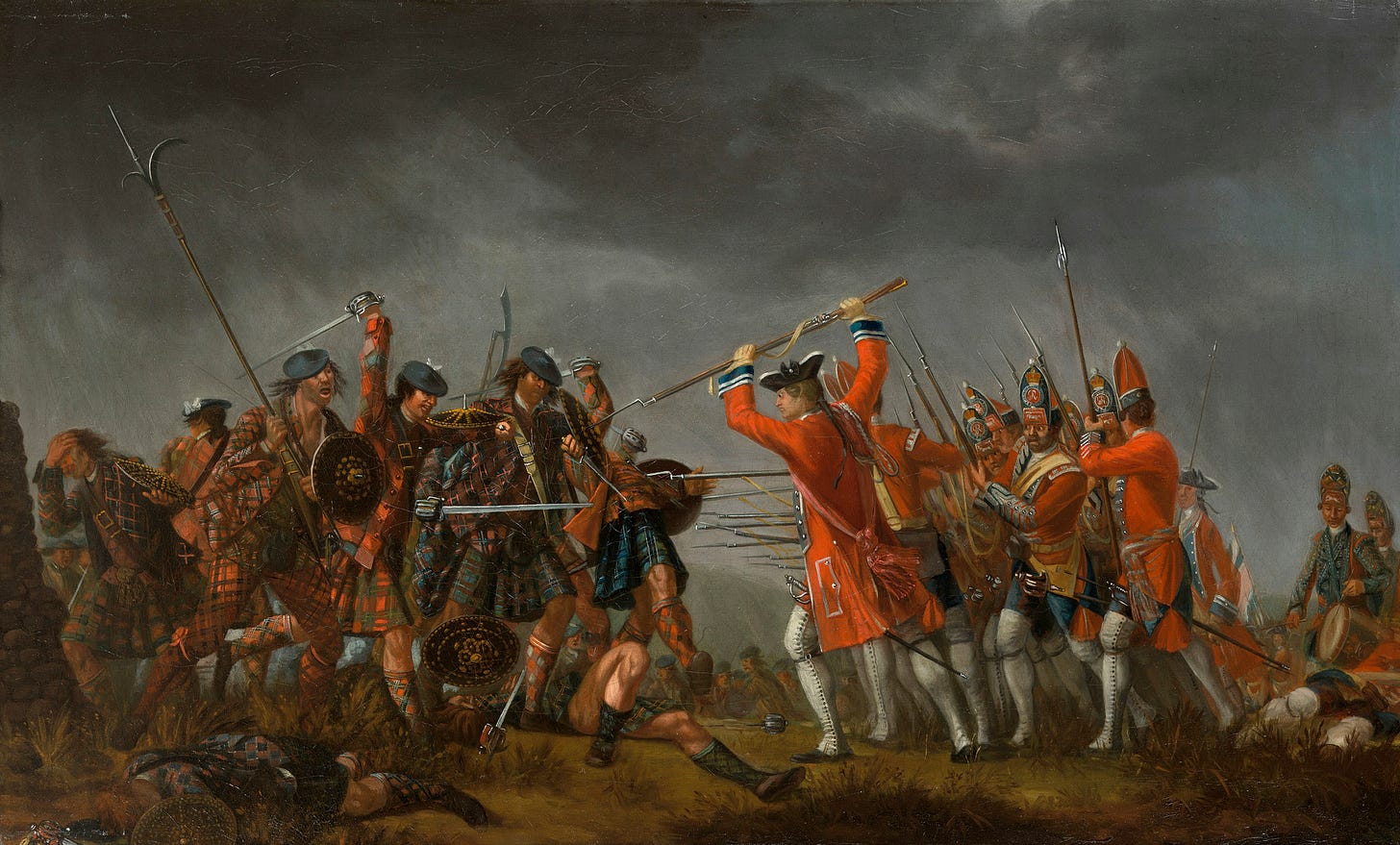You may have noticed the radio silence these past few weeks. I cannot apologise for the randomness of my posting. It will remain a feature for the foreseeable future. However, I hope that you will recognise this as a feature of someone who is writing for the purpose of sharing, building and questioning. I have a day job. I’m not here to work for an algorithm in an effort to get rich off of Substack.
When I got back from Norway, I thought I was sitting pretty. My meeting with my accountant revealed that I’d beaten last year’s entire revenue in my first 6 months this year. We had a holiday in the highlands booked for the October break, and my wife and kids would get to spend some quality time with me, after a reasonably busy summer.
Literally, halfway through the meeting with my accountant, I had a phone call from a client. He informed me that I had 4 days to rewrite an entire training course that I’d written for him, as the coastguard in Scotland had informed us that we no longer met the government guidelines for the course on Human Element Leadership and Management.
My heart absolutely sank. It had taken me months to rewrite this course, and over a year to develop the original. All of the assessments and leadership task exercises were designed to match the old criteria. In the past year, I’ve delivered eight internationally recognised STCW training courses to three different clients, and I’ve never had a rejection from the approving authorities.
“Why?!” I asked, as my vacation plans fell to ruins and my wife’s loneliness and separation trauma were forming a massive black hole in the pit of my stomach, to pull my heart into a vortex of helpless panic.
The coastguard wanted me to remove all of the sections on regulatory compliance with fatigue rules, employment law, etc., and replace them with material on pronouns, diversity and inclusion.
Seriously.
F*cking pronoun police in the Merchant Navy now? When I was coming up, you were lucky if people counted you as human enough to speak to at all.
OK, never mind.
I had recently had a kind invitation from a long-time supporter and friend of the blog – (Shout out to Dermot) – to come and speak to some of his lads about ‘Responsibility’. So with that thought heavy on my mind, I wasn’t about to let the woke idiots damage my slowly growing reputation.
I abused ChatGPT and the coastguard website to within an inch of their life, but we got there. In about 4 days I wrote a 60,000-word leadership and management handbook from scratch, came up with new group exercises and assessments, and produced sufficient PowerPoint slides from the handbook material to keep my client’s entire staff busy for 2 days of emergency editing.
And we still went on vacation to the highlands. Although, my wife was slightly grumpy for a day or two. Understandable, with me getting up before sunrise, and working at the kitchen table of the Air BnB until the wee hours of the night.
Our three-year-old took a tumble while they were visiting Culloden battlefield, and after a WhatsApp first aid assessment, they had to come back to the cottage. Although she is not the first Campbell to be wounded at Culloden, my wife did feel rather unsupported by my distinct focus on work, rather than the care of the damaged infant.

No matter. We got there.
That kind of stress is what we call a Eustressor. I.e., a positive stress that can force us to produce our best work.
Fear of loss is not only useful as a manipulation to stimulate the purchasing of artificially scarce goods. It can be a very real thing, worthy of our attention and best efforts.
Fear of losing quality time with my family is a huge motivator for me. Long-term versus short-term, though, it’s a tricky one to balance. I’ve spent a full 12 months at sea in the past 2 years. Our time together becomes doubly meaningful because of that. And I am sure it is traumatic for my children to miss me when I leave. So making up for it on my leave is vital.
In the end, we had a great time. When we came home after the October break, I delivered the courses for my client and taught their students in person. We had a paramedic lifeboat man, a tug boat skipper and a tall ships youth trust officer on the course. The coastguard approved the leadership course and said they were highly impressed with my teaching and content. So, I’ll take that as a major win.
The following week I had to do training to renew my own license. Sea survival training, fire prevention, fire fighting, advanced fire fighting and proficiency in rescue boats and survival craft. Three days of people trying to drown you under a liferaft in a swimming pool, or asphyxiate and burn you in a fire. It was great fun, but a hard week.
One of the things we focus on in sea survival training (and first aid) is Cold Shock.
From Wikipedia:
Cold shock response is a series of neurogenic cardio-respiratory responses caused by sudden immersion in cold water.
In cold water immersions, such as [… falling overboard from a ship] cold shock response is perhaps the most common cause of death.
… the abrupt contact with very cold water may cause involuntary inhalation, which, if underwater, can result in fatal drowning.
…The cold water can cause heart attack due to severe vasoconstriction, where the heart has to work harder to pump the same volume of blood throughout the arteries. For people with pre-existing cardiovascular disease, the additional workload can result in myocardial infarction and/or acute heart failure, which ultimately may lead to a cardiac arrest.
… Hypothermia and extreme stress can both precipitate fatal tachyarrhythmias. A more modern view suggests that an autonomic conflict — sympathetic (due to stress) and parasympathetic (due to the diving reflex) coactivation — may be responsible for some cold water immersion deaths. Gasp reflex and uncontrollable tachypnea can severely increase the risk of water inhalation and drowning.
Some people are much better prepared to survive sudden exposure to very cold water due to body and mental characteristics and due to conditioning. …”
In short, most people around the UK die within the first few moments of falling into cold water. The body experiences cold shock. For the first 90 seconds you not only shake and shiver, but you take a gasping breath and begin to hyperventilate so that your body has the oxygen it needs to maintain core body temperature. However, a single gasping breath taken underwater is what kills most people.
The critical thing is, that this is Involuntary! We have no control over it.
The solution = Conditioning.
We practice with compulsory training every five years. We cover the airways when entering water. We train to stay motionless in the Heat Escape Lessening Position (HELP Position) and minimise heat loss for the first 90 to 120 seconds in the water until hyperventilation passes. Then we train to complete all survival tasks as rapidly as possible. Before our bodies seize up with Cold Incapacitation and become too frigid to do simple tasks like. Things like removing wet clothing, closing the liferaft cover, or sending a distress signal.
These lessons were hard-learned after the sinking of the MV Lovat, in January 1975. One of the many problems identified by this incident, where 11 of the 13 crew perished, was that the crew believed they had more time to complete their survival tasks than was actually the case.
The ship suffered liquefaction of her coal cargo, which resulted in her cargo shifting, and the ship taking on a heavy list to starboard. After 10 minutes the crew decided to abandon ship. When their lifeboat was unable to be launched, the entire 13-man crew embarked an inflatable liferaft designed only for 10 persons.
Due to the exhaustion of the physical and mental exertion of abandoning the ship, the 13 crew (reportedly) collapsed inside the liferaft and lay there exhausted as the severe weather tossed them around. Sadly, the crew had been taught that they would have about 30 minutes before hypothermia became an issue. As such, they took a moment to rest before attempting to close the liferaft canopy.
This delayed action resulted in the symptoms of cold incapacitation taking effect. The crew went rigid and stiff. They were soon unable to move their hands or bodies as the rain whipped through the exposed liferaft canopy, ensuring that hypothermia gripped them all.
Despite successfully abandoning the ship within range of helicopter rescue and RNLI crews, 11 of the crew died from hypothermia. The dead included a 16-year-old boy.
Only two survived to tell the tale of how they lay helpless and shivering among the rigid corpses of their friends and colleagues.

Something that I have noticed in my own physiology is that ‘Psycho-physiological response’ that we alluded to earlier.
When I do this training, we have to jump from a height into the water to condition ourselves for abandoning ship. Whenever I know I’m about to do that, my body begins hyperventilating slightly even before I take the step.
My breathing regulates quite quickly once in the water, partly because I’m conditioned better after doing this training over the years. Partly because I anticipate the cold and pain before jumping in.
To me, the mind-body dichotomy is a settled fallacy, because of these kinds of experiences. We are our bodies. Our minds are our bodies. Our souls are the breath of life in a physical home.
We are not an abstract entity. The modern idea that we are a ghost made of impulses, driving a meat-wrapped skeletal robot through a simulation doesn’t work. The post-modern assertions of material victimisation, or the religious promises of Marxism and woke-victim-culture are dead in the water.
There is no objective ‘view-from-nowhere’ that can be obtained by human beings.
Postmodernism should be a release from the tyranny of metrics.
Management, psychology, physics, AI, and ergonomics are all coming to the realisation that the breath of life that contains logos and discernment (qualia) is something that cannot be left out of the model. That science has value-based pre-suppositions that are not scientific. That materialism cannot explain epi-genetics or the very real multi-generational consequences of opportunity cost.
But politics…
Politics refuses to learn the lessons of the past, particularly on the radical left.
Even while they believe in spiritual claims, like class consciousness, technocracy, or coalitions of abstract identitarian egregores.
And when people refuse to learn the cold hard facts of reality, history teaches us that very bad things can come out of that denial. Communism, national-socialism, and non-republican democracies have typically ended in furious violence, rather than confess to their sins of human limitation.
And that, my friends, is why we are all waiting with bated breath today. Why people who consider politics itself an evil to be minimised, are shaking and hyperventilating waiting for the election results in the USA.
We know that change is coming. Bracing ourselves for whatever that might be is an involuntary part of the human condition.
Remember that while browsing the internet over the next few days. Regardless of the outcome of the election. And please remember that a lot of the noise you will hear is an involuntary stress response. Just as much of the pre-election hype is an anticipation of trauma that will in most cases, never materialise.
Stay safe. Stay sane.
Start writing today. Use the button below to create a Substack of your own
